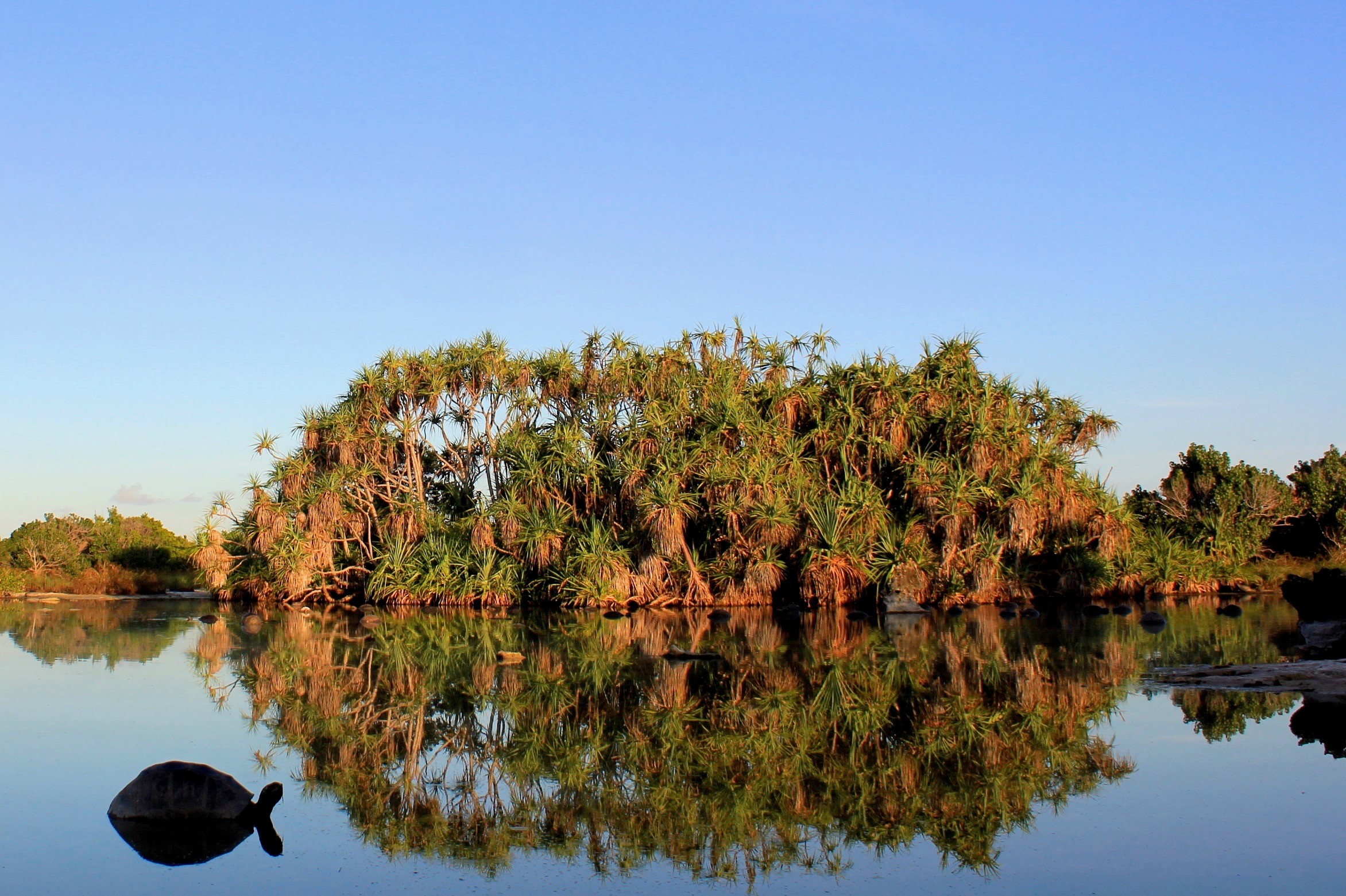Fall Semester 2018
Wilfredo Falcón: Frugivory and seed dispersal by chelonians: From individuals to communities
An Aldabra giant tortoise (Aldabrachelys gigantea) starting its morning activities on an ephemeral pool in East Grande Terre island, Aldabra Atoll. A Pandanus stand can be observed in the background. (© Wilfredo Falcón)
Once common in many islands around the world, most populations of giant tortoises have faced extinction. Aldabra Atoll is home to the largest population of giant tortoises in the world, and is their last bastion in the entire Indian Ocean. Aldabra giant tortoises are important ecosystem engineers, and are increasingly being used for rewilding purposes, with the aims of re-establishing biotic interactions and lost ecosystem functions in degraded islands. Seed dispersal is a particularly important ecosystem function that not only help plants move across the landscape, but also affects the plant population dynamics and community structure, and tortoises are emerging as important seed dispersers. For one of the components of this project, we investigated in situ the role of Aldabra giant tortoises as seed dispersers in the frugivore community of Aldabra, where they are endemic. We performed observations, recorded frugivory interactions with camera traps, and conducted faecal analyses, and analysed the data from the community perspective using bipartite network theory. From 10 frugivore species interacting with 37 plants, surely enough, Aldabra giant tortoises emerged as important seed dispersers in the network. Together with other components of this project, this information will serve to inform the conservation and management of Aldabra Atoll, as well as to inform conservation and rewilding projects using Aldabra giant tortoises.
